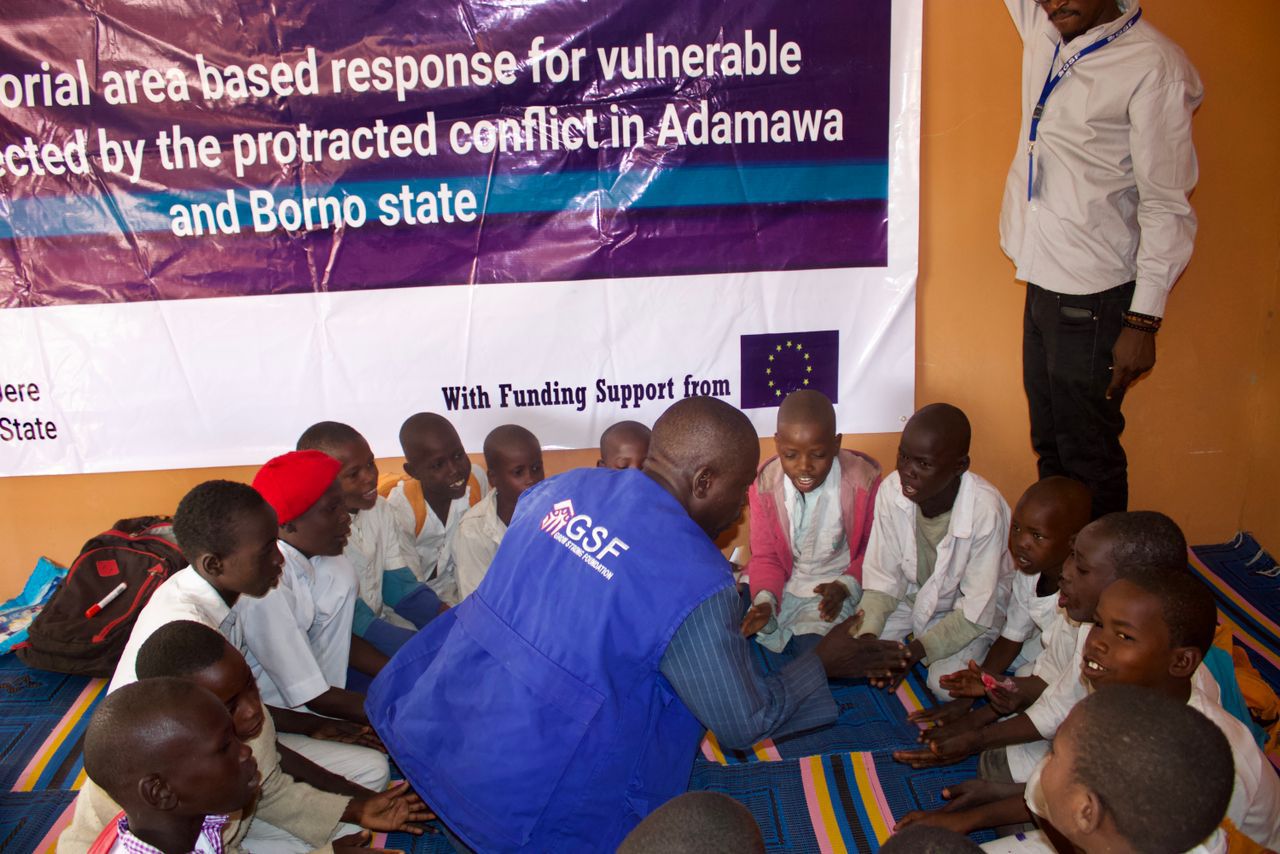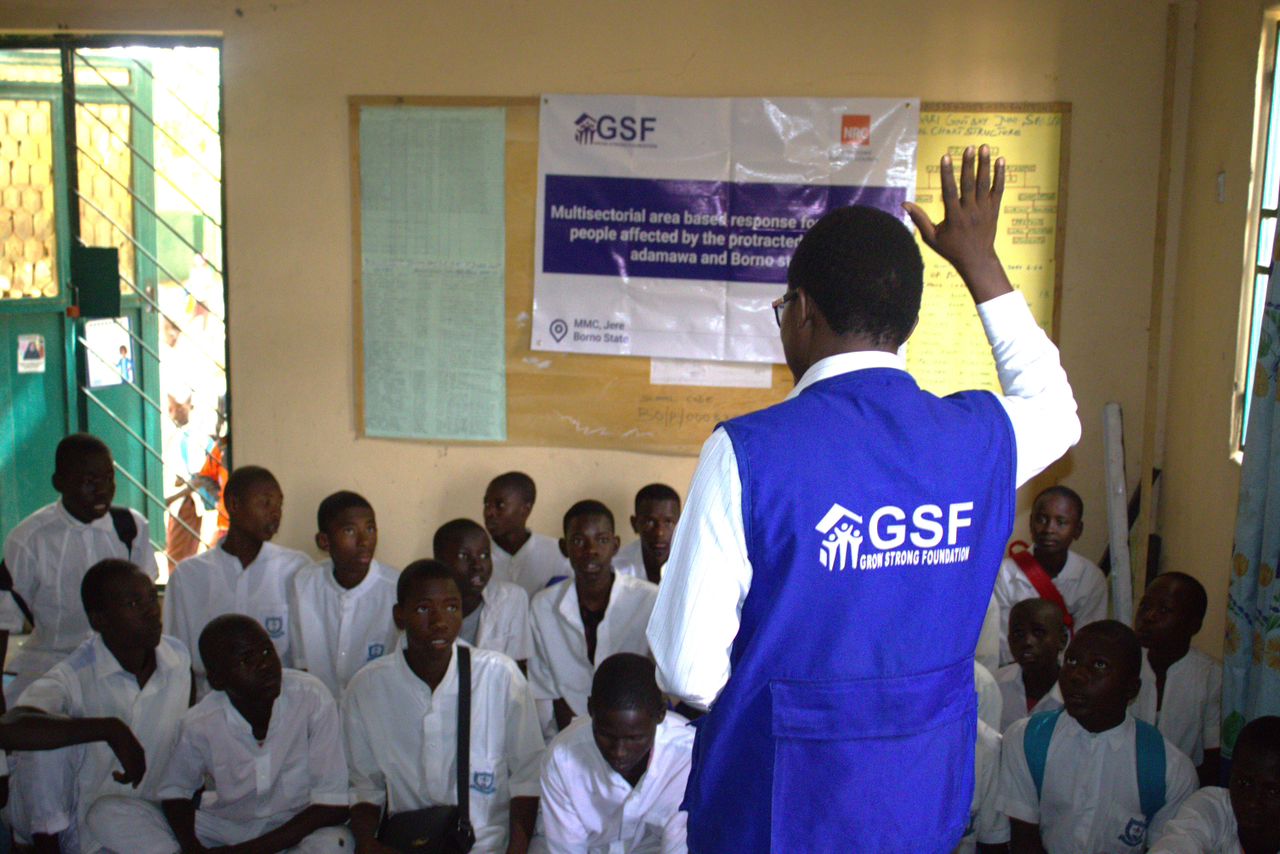
education & capacity building
Restoring access to safe, inclusive, and quality education
On this page
Education
Our Approach:
Grow Strong Foundation (GSF) aligns its education strategy with the Education Cannot Wait (ECW) initiative— a global UN fund dedicated to supporting education in emergencies and protracted crises. We focus on restoring access to safe, inclusive, and quality education for internally displaced children, returnees, and those in underserved host communities.
Conflict, displacement, and natural disasters have disrupted schooling for thousands of children in Northeast Nigeria. Many have dropped out entirely, exposed to further risks like violence, child labor, and exploitation. GSF is working to change that.
At GSF, we believe education is not just a lifeline—it’s a long-term solution for peace, protection, and progress.
What We Do:
-
Provide access to safe, protective, and quality learning spaces
-
Support children who have lost access to education due to conflict, displacement, or crisis
-
Integrate child protection components to ensure children learn in a secure environment
-
Collaborate with communities and partners to promote education as a right and pathway to recovery

Our Objective:
Ensure vulnerable children—especially IDPs, returnees, and those in host communities—can access safe, continuous, and quality education, even in the face of crisis.

Our Impact:
- Reduced dropout rates in conflict-affected areas
- Safer, more inclusive learning spaces for vulnerable children
- Renewed hope and opportunity through education
